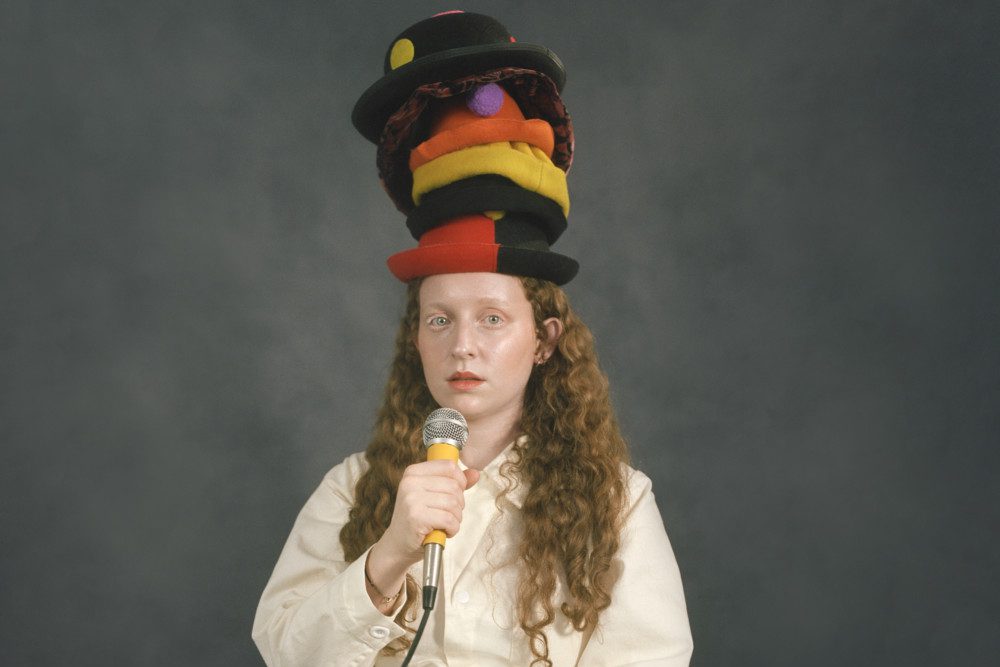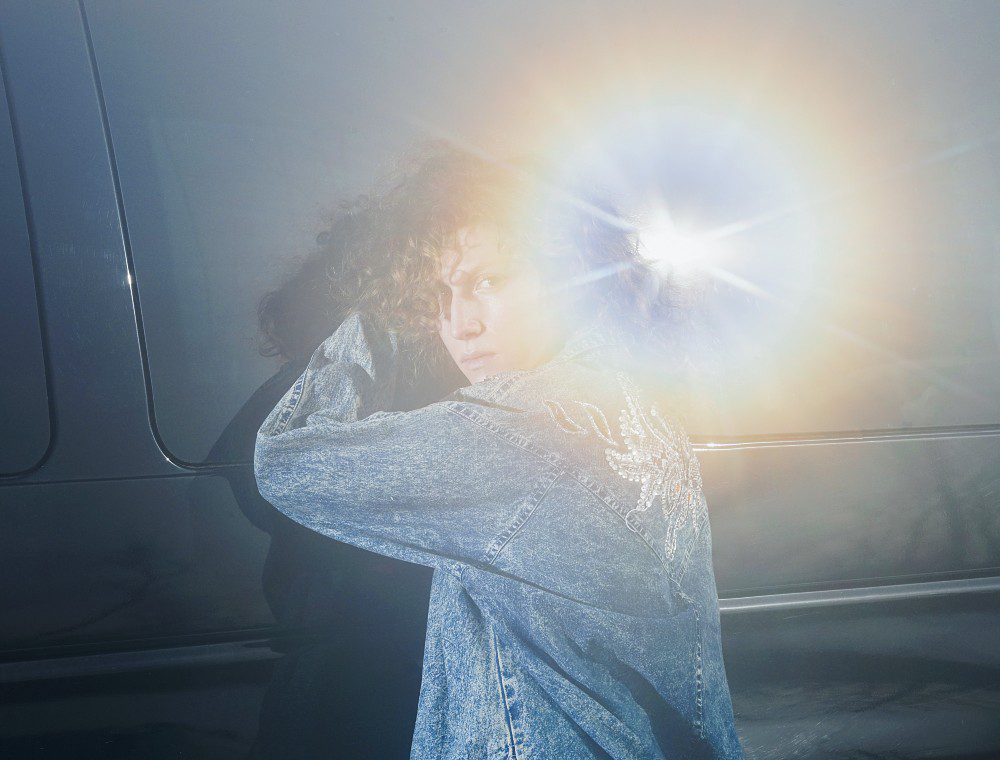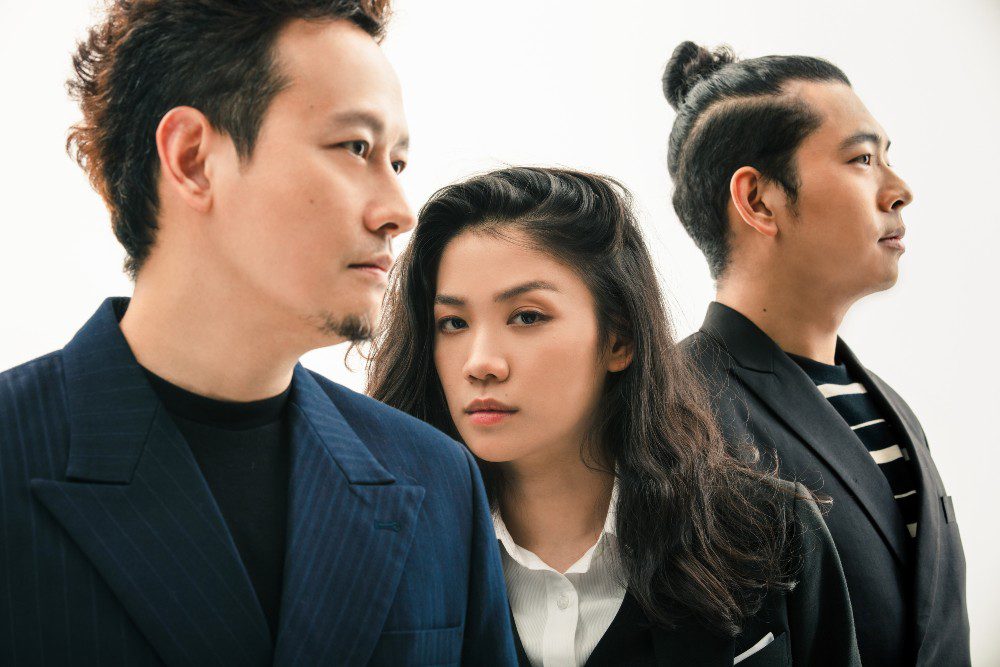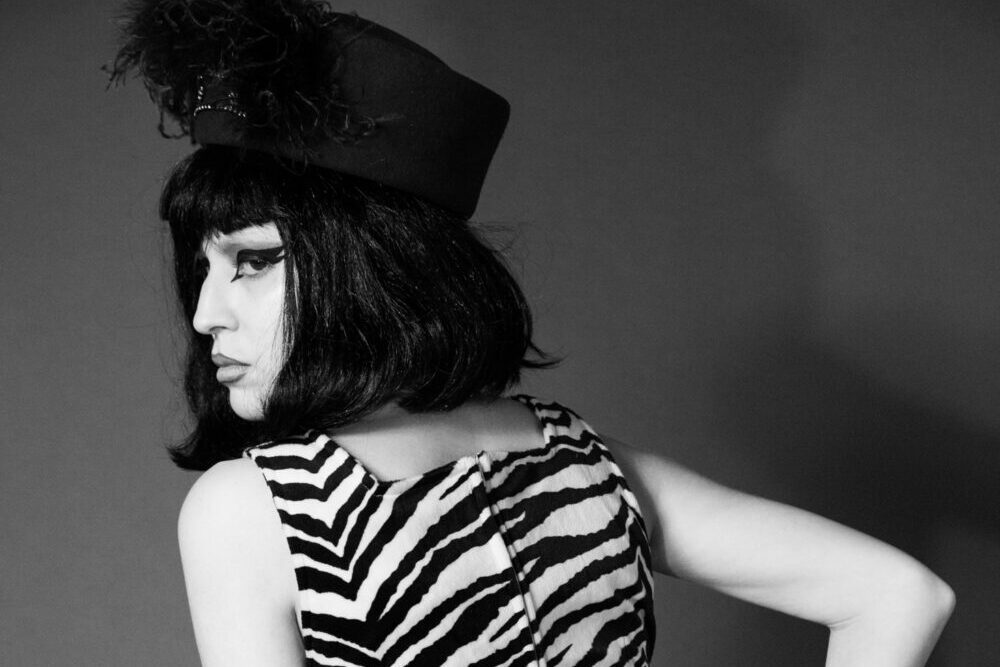
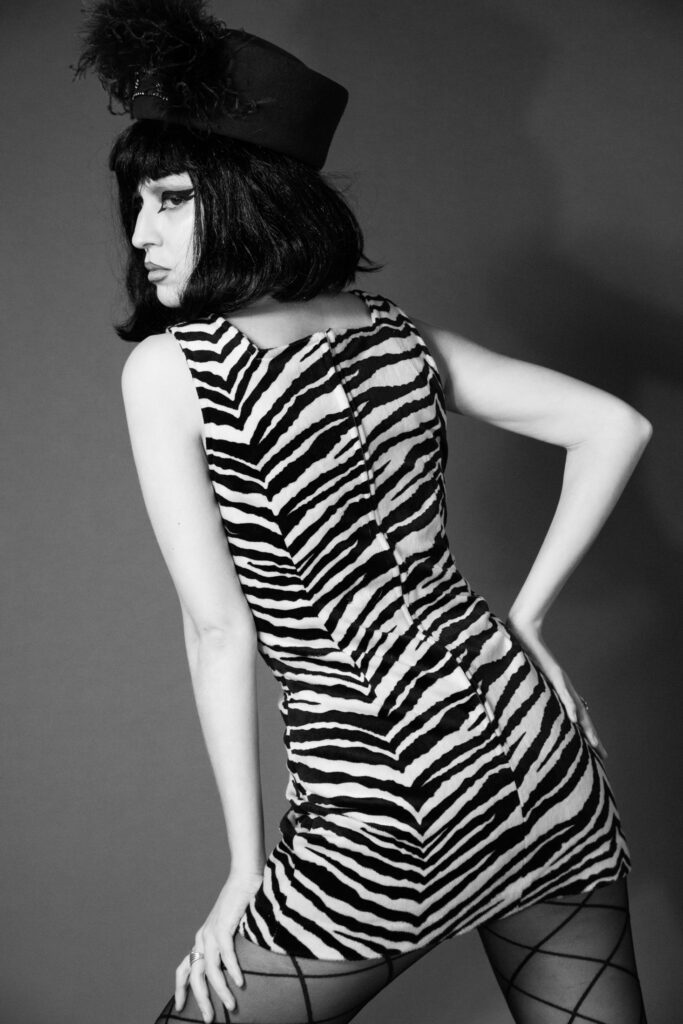
Back in October, Tania Ordoñez, known professionally as Soltera, released her track “Tengo Miedo” on a whim. “Basically, it’s the COVID song,” the L.A.-based electronic music artist says over a video call. In it, Ordoñez wrestles with her feelings about going out again — the title is Spanish for “I’m afraid” — as synthesizer tension builds and releases over the course of the track. The tune was accompanied by a video featuring Ordoñez and friends playing as a band on a Los Angeles hillside and the response was so positive that she decided to follow it up with an EP. But, there was a catch: Ordoñez would have to work quickly if she wanted to release it by year’s end, as a friend with record label experience had suggested would be best.
That gave Ordoñez just a handful of weeks to make the remaining five songs that fill out Sin Compromiso. “Every day, I got on my synthesizer. I would make a beat and slap vocals on top,” says Ordoñez. She finished the project in just under three weeks and Sin Compromiso hit Bandcamp on December 30.
It’s filled with revelations that Ordoñez has had since the onset of the pandemic. “Overall, I think a lot of themes in the songs are about me embracing insecurities and fear,” she says. “There’s a certain point where you need to be more selective with who and what you put your energy towards. That’s kind of the theme of all the songs.”
Musically, Ordoñez melds styles like darkwave and minimal synth with doses of techno and house and the energy of punk. It’s reflective of her eclectic range of influences. Ordoñez grew up in L.A.’s San Fernando Valley listening to punk, hardcore and power violence and later gravitated towards dance music. “I started realizing the similarities,” she says of those seemingly disparate influences. Ordoñez cites Donna Summer, alongside Spanish post-punk band Alaska y Los Pegamoides, Hi-NRG outfit Lime and electronic experimentalists Psychic TV as some of her favorite artists.
Although a longtime music fan, Ordoñez didn’t start making music herself until 2015, following the death of her father. “During that time, I felt a lot of emotions and I wanted to put it somewhere,” she recalls. “I didn’t really feel like an artist in general because I didn’t go to school for it. So, I was kind of really aimless and scared to approach it.”
But, Ordoñez bought herself a sampler, and that launched her journey into music. She borrowed drum machines from friends and watched YouTube tutorials. She learned how to sample and manipulate her own vocals. Then, she started playing live at house parties, art shows and other events. “Every show I played would get another show,” she says. “In the beginning, I had no training at all. I was very, very self-taught. All the shows that I played before the pandemic were the same six songs that I made beforehand with borrowed drum machines and synthesizers.”
Since 2020, though, Ordoñez musical pursuits have taken a major turn. “When the pandemic hit, I was isolated at home every day. I lost my job,” she explains. After her partner downloaded Ableton, Ordoñez began experimenting with the program. “That helped my process so much more because, on Ableton, there were all these different drum kits. On YouTube, there are so many tutorials on how to use it.”
Ordoñez was also able to buy her own synthesizer, while she checked out other synths and drum machines from FeM Synth Lab, an L.A. lending library that aims to make high-end gear accessible to people of marginalized genders. Combined with her newfound Ableton skills, all this gave Ordoñez a newfound freedom to create.
“Before, on a sampler, I was playing all the music live. Every knob I was playing live as I was performing and it was pretty difficult, singing and playing it live,” she says. The experience also taught Ordoñez that she enjoys sound engineering and it opened up the possibility of perhaps going to school for music in the future. Plus, she developed an interest in scoring films and had the chance to do that after earning a grant for a film project from Los Angeles Metro.
Ordoñez has taken her love of music into other pursuits as well. She’s a DJ and hosts the monthly Dublab show called Todo o Nada. She also teamed up with fellow artists Aarum Alatorre and Pedro Verdin, of the duo Pacoima Techno, to form the label Casa/Teca. “We did this label because we wanted to represent underground artists, especially underground artists of color, and have this freedom to release music as much as we wanted to without limitations and music videos,” Ordoñez explains. “It’s very community-based, very anti-capitalist, anti-clout.”
It’s a response to the struggles Ordoñez sees with artists, and herself, to the pressure to fit into certain molds and to focus on money as the sign of success. It’s a balancing act. “I’m really putting my all into this project, hoping that it will go somewhere,” says Ordoñez, “but also remembering that I do it because I love it and it’s fun.”
Follow Soltera on Facebook and Instagram for ongoing updates.

